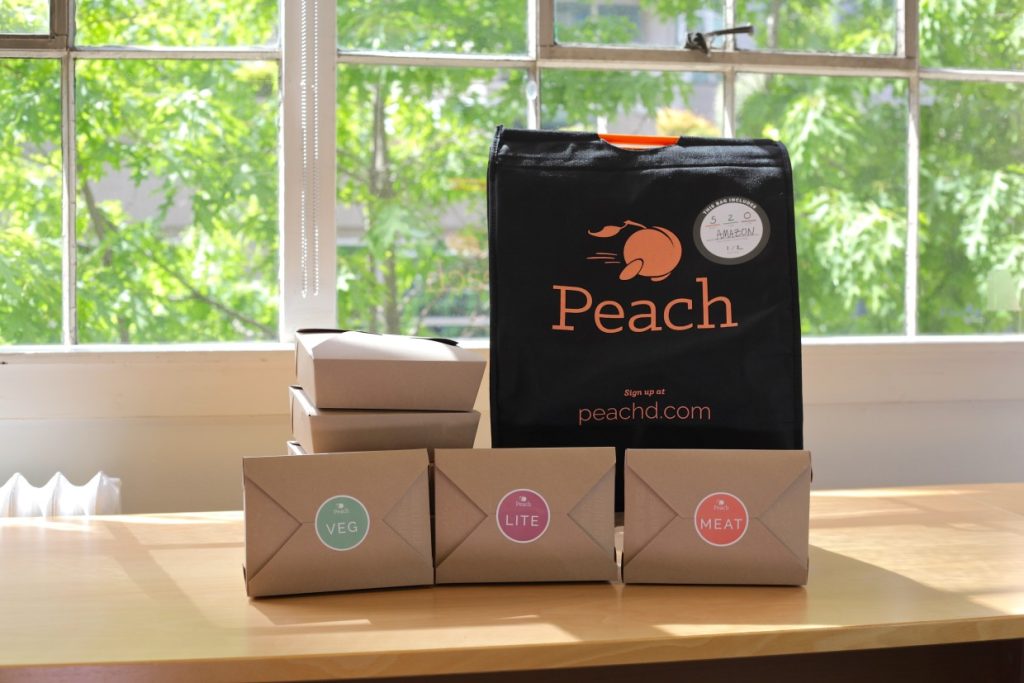The Evolution of Workplace Food Delivery: Fooda’s Acquisition of Peach
In a notable development within the workplace food delivery sector, Chicago-based Fooda has acquired Seattle startup Peach, marking another significant consolidation in an industry that continues to evolve rapidly. The deal, which closed in July 2025, brings together two companies that share a similar mission of transforming how employees access meals during their workday. Nishant Singh, Peach’s CEO, confirmed the acquisition, noting it was part of a broader wave of consolidation sweeping through the food delivery landscape. This trend includes other major transactions such as DoorDash’s $3.9 billion purchase of Deliveroo and Wonder’s acquisition of Grubhub. The timing of this deal reflects the maturation of the food delivery market, where strategic partnerships and mergers have become increasingly common as companies seek sustainable business models in a competitive environment.
Peach’s journey began in 2014 when Singh, along with fellow ex-Amazon engineers Denis Bellavance and Chenyu Wang, conceived the idea during a Startup Weekend event in Seattle. Their innovative approach differentiated Peach from typical food delivery services by focusing on consolidating multiple lunch orders destined for the same office buildings, creating efficiencies in delivery logistics. This model attracted attention from prominent Seattle venture capitalists, who helped the company raise a total of $16 million in funding. The company achieved an impressive milestone by turning a profit in several markets just three years after its launch, demonstrating the viability of its business model. “While we weren’t able to put Peach on a venture-growth path as quickly as Doordash or UberEats, we built something special — a sustainable delivery service model that brought the best local restaurant food to workplaces,” Singh reflected, highlighting the company’s focus on sustainability over rapid expansion.
Like many businesses in the food service industry, Peach faced significant challenges during the pandemic when office buildings emptied and remote work became the norm. The company navigated this difficult period by pivoting its focus to its B2B operations, developing “new ways to serve employers who wanted to feed their teams” even in a distributed work environment. This strategic shift allowed Peach to maintain profitability and establish an enduring business model, though Singh acknowledged that the company “couldn’t return to venture-scale growth” following the pandemic. This reality likely contributed to the decision to join forces with Fooda, which has been actively expanding its market presence. The acquisition appears to be a mutually beneficial arrangement, with Fooda gaining Peach’s technology and market presence, while Peach finds a path forward as part of a larger organization with complementary services.
Fooda, founded in 2011, has established itself as a significant player in the workplace food program sector, operating in more than 45 markets across the United States. The company’s business model focuses on bringing restaurant-quality meals directly to workplaces, creating convenient food options for employees while helping companies enhance their workplace amenities. The acquisition of Peach follows Fooda’s previous purchase of group delivery company Foodsby, indicating a deliberate strategy of growth through acquisition. While the financial terms of the Peach deal were not disclosed, Singh indicated that Fooda was among several companies that approached Peach in early 2025, suggesting there was competitive interest in the Seattle startup. “Given the ongoing consolidation in our industry, there was a natural synergy that made Fooda a great fit,” Singh explained, pointing to the complementary nature of the two companies’ operations and vision.
The integration of Peach into Fooda appears to be proceeding thoughtfully, with the Peach service continuing under a new name in its existing cities. This approach allows Fooda to maintain the customer relationships and operational infrastructure that Peach has developed while gradually bringing the service under its corporate umbrella. At the time of the acquisition, Peach had six employees, with Singh and COO Prerit Agarwal staying on temporarily to help with the transition. This relatively small team size reflects the efficiency of Peach’s operation, which had evolved to focus on sustainable growth rather than the rapid expansion often associated with venture-backed startups. The decision to maintain service continuity suggests that Fooda recognizes the value in Peach’s established market presence and doesn’t want to disrupt existing customer relationships during the integration process.
Looking toward the future, Singh indicated he plans to return to his entrepreneurial roots, focusing on “creating value for working professionals and working toward building a B2C brand.” This suggests that while the Peach chapter is closing, Singh’s journey as an innovator continues. The acquisition of Peach by Fooda represents more than just a business transaction; it symbolizes the ongoing evolution of the food delivery industry, particularly in the workplace sector. As companies continue to refine their approach to employee benefits and workplace amenities in a post-pandemic world, services that can efficiently deliver quality food options to workers—whether in traditional offices or distributed locations—will remain valuable. The consolidation trend we’re witnessing, exemplified by this acquisition, indicates that scale, operational efficiency, and technological capabilities will be key differentiators as the industry matures, with larger players increasingly absorbing innovative smaller companies to enhance their service offerings and market reach.


